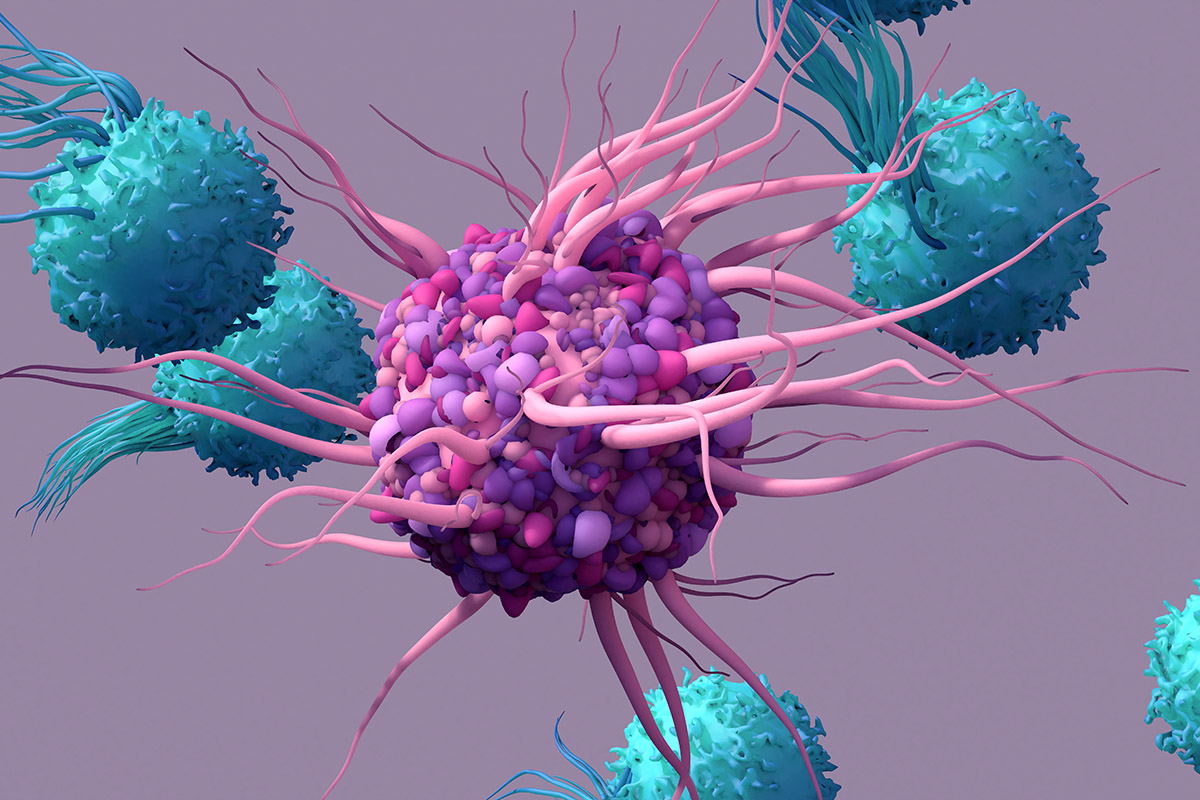The stem-like CD4 T cell, a novel immune cell type that is essential in the battle against malignancies, has been discovered by researchers at Emory University’s Winship Cancer Institute. This finding, which was reported in the journal Nature, creates new opportunities to improve anti-tumor immunity, particularly for patients who don’t react well to traditional immunotherapies.
Under the direction of Dr. Haydn T. Kissick, the study shows that lymph nodes close to tumors contain these stem-like CD4 T cells. They frequently stay dormant despite having the capacity to elicit a potent anti-tumor response, which restricts the immune system’s capacity to successfully fight cancer. These cells have the capacity to develop into numerous types of immune cells and to self-renew. Two proteins that define them—PD1 and TCF1—are essential to their activation and regulation, among other functions.
According to Kissick, a considerably stronger immune response to cancer is present in about 10% of patients with these stem-like CD4 T cells active. This results in improved responses to checkpoint immunotherapy and a longer postoperative survival. The problem, though, is that these cells are typically in a suppressed state in most patients, which essentially tells the immune system to do nothing and ignore the tumor.
Maria Cardenas, the study’s first author, emphasized how critical it is to overcome this inhibition. The stem-like CD4 T cells can be turned into an active state, which would resume a strong anti-tumor immune response, the researchers discovered, even though many patients show an inactive immunological state. This implies that these cells are present in the lymph nodes of almost all patients, and knowing how to change them from active to inactive states may lead to the development of novel immunotherapy treatments.
The development of strategies to activate these cells and maintain their immunological responses will be the main focus of future research. In order to successfully “reprogram” these stem-like CD4 T cells and eliminate obstacles to their activation against cancer, the team plans to employ mRNA and lipid nanoparticle (LNP) technologies.
Kissick was upbeat about Emory’s chances for innovation, highlighting the clinical trials’ preparedness and their joint efforts with doctors and patients. He pointed out that a lot of the components needed to move this research further are already in place, suggesting a bright future for the effort to improve cancer immunotherapy.
SOURCE :
ANI NEWS








